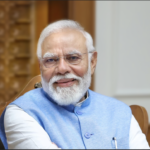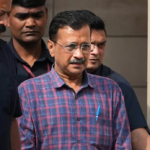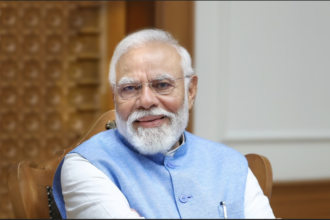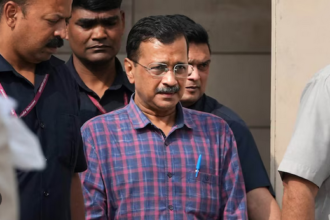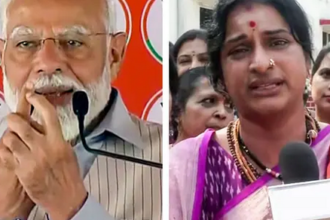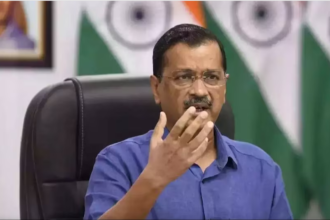Introduction :- Mobile Voting in India
Mobile Voting in India :- In recent years, mobile technology has revolutionized various aspects of our daily lives, including the way we communicate, shop, and access information. As India moves towards a digital future, mobile voting emerges as a promising solution to enhance electoral participation and ensure a more inclusive democratic process.

The Need for Mobile Voting :- Increasing Voter Turnout
One of the primary challenges in Indian elections is low voter turnout. Despite being the world’s largest democracy, India often witnesses a significant portion of the electorate abstaining from voting due to logistical issues, time constraints, or mobility challenges. Mobile voting can address these barriers by providing a convenient and accessible platform for all eligible voters.
Ensuring Security and Transparency ( Mobile Voting in India
Concerns about the security and transparency of the voting process are paramount. Mobile voting systems can incorporate advanced encryption technologies, biometric authentication, and blockchain to ensure that each vote is securely cast and accurately counted. These measures can enhance public trust in the electoral process.
How Mobile Voting Works :- Registration Process
To participate in mobile voting, eligible voters must first register through a secure online portal. This process involves verifying their identity using Aadhaar or other government-issued identification. Once registered, voters receive a unique voting PIN or code, which they will use to access the mobile voting platform.
Casting a Vote
On election day, registered voters can log into the mobile voting app using their unique PIN, along with additional authentication steps such as fingerprint or facial recognition. The app presents the list of candidates and allows voters to cast their votes with a simple tap. After voting, a digital receipt is generated, confirming that their vote has been recorded.
Verification and Counting
Votes cast through the mobile platform are encrypted and stored in a secure digital ledger. This ledger can be publicly audited to ensure transparency and accuracy in the counting process. The use of blockchain technology can provide an immutable record of each vote, preventing tampering and ensuring that results reflect the true will of the people.
Benefits of Mobile Voting :- Convenience and Accessibility
Mobile voting offers unparalleled convenience, allowing voters to cast their ballots from anywhere with an internet connection. This flexibility can particularly benefit those living in remote areas, individuals with disabilities, and the elderly.
Cost-Effectiveness
Implementing a mobile voting system can significantly reduce the costs associated with traditional voting methods, such as setting up polling stations, printing ballots, and hiring staff. These savings can be redirected towards improving other aspects of the electoral process.
Environmental Impact
Reducing the need for physical ballots and polling stations can also have a positive environmental impact. Mobile voting minimizes the use of paper and reduces the carbon footprint associated with transportation and logistics on election day.
Challenges and Solutions :- Technical Challenges
Implementing mobile voting at a national scale presents several technical challenges, including ensuring robust cybersecurity measures and maintaining server integrity under heavy traffic. Collaboration with leading technology firms and continuous testing can help mitigate these risks.
Digital Divide
Another significant challenge is the digital divide, which refers to the gap between those who have access to digital technologies and those who do not. Government initiatives to improve internet penetration and digital literacy, particularly in rural areas, are crucial for the successful adoption of mobile voting.
Legal and Regulatory Framework
Establishing a comprehensive legal and regulatory framework is essential to govern the use of mobile voting. This includes setting standards for data privacy, defining the roles and responsibilities of various stakeholders, and outlining procedures for addressing disputes and grievances.
Future Prospects of Mobile Voting in India:- Pilot Programs and Phased Implementation
To ensure the successful integration of mobile voting, India can start with pilot programs in select regions or for specific types of elections, such as local or municipal elections. These pilot programs can help identify potential issues and refine the system before a nationwide rollout.
International Collaboration
India can benefit from collaborating with countries that have successfully implemented mobile voting systems. Learning from their experiences and adopting best practices can accelerate the development and deployment of a secure and efficient mobile voting platform.
Conclusion of Mobile Voting in India
Mobile voting represents a significant leap forward in the evolution of India’s electoral system. By leveraging advanced technologies and addressing key challenges, we can create a more inclusive, secure, and efficient voting process. As we look towards the future, mobile voting has the potential to strengthen our democracy and ensure that every citizen’s voice is heard.



